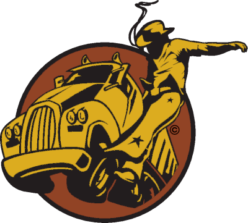Patience is in our best interest.
When you file a claim with your insurance company, being patient to receive an expected settlement check can be difficult. Like most who have been in this industry for any length of time, I have had the misfortune of enduring my share of insurance claims. Seldom have I gone through an insurance claim when a settlement was reached and paid as quickly as I had wished for. That slow, agonizing claims process always left me frustrated.
However, since becoming an insurance agent and witnessing claims investigations, I have a new appreciation for that slow pace. Before you completely dismiss me, let me share with you what I have learned. It is quite possible, in fact probable, you will come to the same conclusion I have.
In 2001 I was involved in a terrible accident. A car hit me on the passenger side of my 1994 W900 Kenworth, then spun in front of me and I “T-boned” the car broadside. The car spun again, now facing me on my driver’s side and the car hit my driver’s side fuel tank, launching the car into the medium. It came to rest under a bridge at the I5, California 60 & I10 junction in Los Angeles. One witness stopped and immediately checked on the driver of the other car (thankfully his injuries were very minor), then came to check on me. He remained at the scene and insisted on providing a statement to the investigating police officer. The witness informed the officer that the car literally ran right into the side of my truck as if they hit my truck deliberately.
The damage to my truck was significant, but not to the point that I was unable to repair it myself. I took a week off work and I replaced the bumper and one wheel; repaired both fuel tanks, fenders, etc. and got back to work. The claim seemed to be taking forever, and I wanted to be reimbursed for my loss (repair expenses), especially when the witness indicated that this was a deliberate act by the driver of the car. After several months went by I finally received a notice from my insurance company that the investigation of the claim was complete and that my policy would not pay for any medical or property damage to the other driver or the car he was driving. The adjuster’s investigation discovered several things.
- The owner of the car was not the driver.
- The car was not insured.
- Several payments to the lien holder of the car were passed due.
The adjuster concluded that this was a case of insurance fraud. I did not want a claim on my policy (even for uninsured motorist) so I did not accept a claim settlement check for reimbursement of my repair costs.
Had the insurance company not fully investigated the claim, with or without the eyewitness, and simply settled the claim quickly because that big, bad, ugly truck darn near ran over that poor innocent little car, both I and the insurance company would have been victims of insurance fraud. It could have cost the insurance company an untold amount, up to $1 Million (my policy’s limit of liability) and dramatically increased my premiums for years to come or put me out of business all together. In my case, it would have put me out of business because I was already a high risk Independent Owner-Operator paying near top dollar for my insurance.
Recently, one of my insurance customers was involved in an accident. They were hit from behind by another truck. The company who owned that other truck filed a claim against my customer’s policy. They believed that my customer was at fault. Again, after many months (6 or more I believe it was) the insurance company’s adjuster completed the investigation. The adjuster denied the claim of the owner of the other truck who our customer from behind.
In my customer’s case, had the insurance company paid and settled the claim to the owner of the other truck, the insurance company would have been accepting financial responsibility and paid out thousands of dollars for an accident the customer was not liable (at fault) for.
In both of these very real examples the insurance company is doing exactly what we need them to do. Making 100% certain that they and their insureds (us customers) are not being victimized by someone trying to either defraud the insurance company or having us accept financial liability for an accident we were not at fault for.
What is most surprising to truck owners is a slow claims process for a single vehicle accident. In these instances, we still want the insurance company to fully investigate the claim before settling. Why? For the exact same reasons as the previous 2 examples! If insurance companies don’t investigate each and every claim thoroughly before paying a settlement, could you just imagine how many cases would be fraud!? In turn, that would result in premiums so high that none of us could afford to buy insurance.
I have learned to think of our insurance system as something like our judicial system. It ain’t perfect, but it’s the best there is.
To get more great business tips and trucking news visit Overdrive extra!![]()

